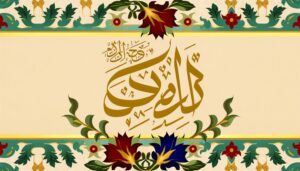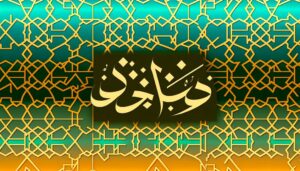Dua Name Meaning in Arabic
'Dua' is an Arabic name with deep spiritual connotations. It translates as 'call upon' or 'invoke,' symbolizing heartfelt prayer or supplication directed towards the divine.
The name reflects a powerful act of worship, where one seeks guidance, wisdom, and inner peace from the divine. As you further explore, you'll find 'Dua' intricately woven into Arabic traditions and literature, amplifying its rich cultural significance.
You might even come across renowned personalities bearing this name, contributing to its modern-day popularity. Stick around, and you'll unravel the fascinating layers behind 'Dua' in both its spiritual and cultural dimensions.

Key Takeaways
- 'Dua' is an Arabic term meaning 'to call upon' or 'invoke', often used to refer to supplication or prayer.
- It originates from the Arabic word 'دعاء' which signifies seeking God's assistance and divine guidance.
- The name 'Dua' reflects a deep spiritual connection with the Divine, symbolizing the act of worship and dependence on God.
- In Arabic culture and literature, 'Dua' is significant as it represents human longing for divine intervention and spiritual growth.
- Famous personalities like singer Dua Lipa have popularized the name, which is also seen in diverse fields such as arts, politics, and journalism.
The Definition of 'Dua'
In a religious context, 'Dua' is a heartfelt supplication or invocation that you, as a believer, make to seek God's assistance, express gratitude, or ask for divine guidance.
It's a form of communication with the Divine, a means of expressing your deepest desires and feelings. It's not merely about asking for tangible things, but also about seeking spiritual growth, wisdom, and inner peace.
Dua is an act of worship, a personal conversation with God that strengthens your connection with Him. Throughout various religious texts, you'll find numerous examples of prophets and saints engaging in Dua, exemplifying its significance.
Essentially, Dua is your personal channel of communication with the Divine, reflecting your faith, hope, and reverence.
Arabic Origin of 'Dua'
Now, let's turn our attention to the Arabic origins of 'Dua'.
We'll start with an analysis of its etymology, investigating how the term evolved over time.
Then, we'll explore its cultural significance within Arabic-speaking societies, shedding light on the broader context surrounding this word.
'Dua' Etymology Analysis
Let's explore the etymology of 'Dua', a term deeply rooted in Arabic origins, to gain a better understanding of its meaning and significance.
'Dua' is derived from the Arabic word 'دعاء', which means to 'call upon' or 'invoke'. The term is typically used to refer to a supplication or prayer made to God.
In the context of its etymology, 'Dua' holds three vital aspects:
- Invocation: In Arabic, 'Dua' is often used to denote the act of invoking or calling upon God.
- Supplication: 'Dua' also refers to a humble request or plea to God.
- Prayer: This term can be used to denote a form of worship involving heartfelt pleas to a higher power.
This discussion underscores the deep spiritual connection inherent in 'Dua', making it more than just a name.
Cultural Significance of 'Dua
Delving into the cultural significance of 'Dua', you'll find it deeply intertwined with the fabric of Arabic and Islamic traditions, serving as a spiritual conduit for invoking divine intervention and expressing humility before God. 'Dua' is a pivotal aspect of Muslim worship, akin to prayer in other religions. It's a personal, intimate form of communication with God, signifying total surrender and dependence.
In Arabic culture, 'dua' isn't just a religious act, but a social norm, used to offer well-wishes, blessings, and condolences. The power of 'dua' is a reflection of the Arabic and Islamic belief in the omnipotence of God, reinforcing the idea of His mercy and benevolence. Understanding 'dua' offers profound insights into Arabic language, faith, and culture.
Cultural Significance of 'Dua'
In the domain of Arabic culture, 'Dua' holds a deep spiritual significance, often regarded as the very essence of worship. It's a term that transcends the boundaries of mere nomenclature and enters the sphere of divine communion.
First, 'Dua' is a personal, intimate conversation between a believer and their Creator, often in moments of need, gratitude, or contemplation.
Second, 'Dua' is a cornerstone of the Islamic faith, reinforcing the central belief in monotheism and the power of prayer.
Lastly, 'Dua' is a socio-cultural practice that strengthens communal bonds. It's common to make 'Dua' for one another, symbolizing empathy, solidarity, and shared faith.
Understanding 'Dua's' cultural significance, you'll realize it's more than a name. It's a spiritual lifeline, a testimony to faith, and a bond that unites.
Usage of 'Dua' in Arabic Literature
Exploring the vast landscape of Arabic literature, you'll encounter 'Dua' as a recurring motif, often employed to express deep-seated emotions, spiritual yearnings, and existential dilemmas.
Renowned Arab poets and authors have utilized 'Dua', not merely as a linguistic tool, but as a powerful symbol representing human longing for divine intervention.
In classical Arabic poetry, 'Dua' often forms the crux of the narrative, illustrating the poet's plea for mercy, guidance, or forgiveness.
Meanwhile, in Arabic novels and short stories, characters frequently resort to 'Dua' in moments of despair or introspection, amplifying the narrative's emotional intensity.
Therefore, 'Dua' in Arabic literature mirrors the Arab ethos, encapsulating the society's spiritual inclinations and emotional depth.
'Dua' in Modern Day Context
You'll find that 'Dua' continues to hold significant cultural and spiritual relevance in today's Arab society, often being invoked in everyday conversations, social media posts, and modern literature.
- Everyday Conversations: It's common to hear 'Dua' used in daily interactions, both as a name and a term for supplication, reflecting its spiritual roots.
- Social Media: The term is frequently seen in posts and comments, symbolizing good wishes and prayers for others.
- Modern Literature: Contemporary Arab writers often incorporate 'Dua' in their works, further solidifying its cultural significance.
Thus, 'Dua' maintains its prominence in current Arab society, its deep-seated meaning resonating with individuals across generations.
Its ubiquitous presence in modern times underscores its enduring impact.
Famous Personalities Named 'Dua
Now, let's turn our attention to famous personalities named 'Dua'.
You may find it intriguing that this name has made its mark in the world of celebrity culture.
From influential figures to rising stars, we'll explore how they've carried and represented the name 'Dua' on the global stage.
'Dua' in Celebrity Culture
One of the most recognizable names in the celebrity world today is 'Dua', prominently carried by the Grammy-winning pop sensation, Dua Lipa. This name hasn't only gained popularity due to her unique music style but also because of its Arabic origin, which means 'prayer' or 'call'.
Dua Lipa's influence in the celebrity culture is evident in three significant ways:
- Fashion Influencer: Dua's eclectic style has inspired many young fashion enthusiasts around the globe.
- Social Activist: She leverages her fame to raise awareness about various social issues.
- Role Model: Dua's resilience and dedication to her craft serve as an inspiration to aspiring artists.
Influential Figures Named 'Dua
While Dua Lipa's fame has certainly popularized the name, there are other notable figures who also bear the name 'Dua', making significant strides in their respective fields. Let's explore the world of these influential figures named 'Dua'.
| Name | Profession | Contributions |
|---|---|---|
| Dua Abbas Rizvi | Visual Artist | Known for her surrealistic artworks in Pakistan and worldwide. |
| Dua Bhutto | Politician | An influential figure in Pakistan's political party, Pakistan Tehreek-e-Insaf. |
| Duaa Eldeib | Journalist | A finalist for the Pulitzer Prize and winner of an Emmy Award for investigative reporting.
These individuals named 'Dua' have made remarkable contributions in the arts, politics, and journalism. Their achievements showcase the strength and adaptability of their namesake, increasing its global appeal.
Conclusion
Just as a pearl shines in the depths of the ocean, 'Dua', a name of Arabic origin, holds a deep cultural significance. It's not just a name, it's a plea, a prayer, a yearning. Its usage in Arabic literature and modern context continues to resonate powerfully.
Notable personalities like Dua Lipa have further cemented its prominence. Therefore, 'Dua' carries a rich, beautiful history, and a profound meaning that transcends borders and generations.






